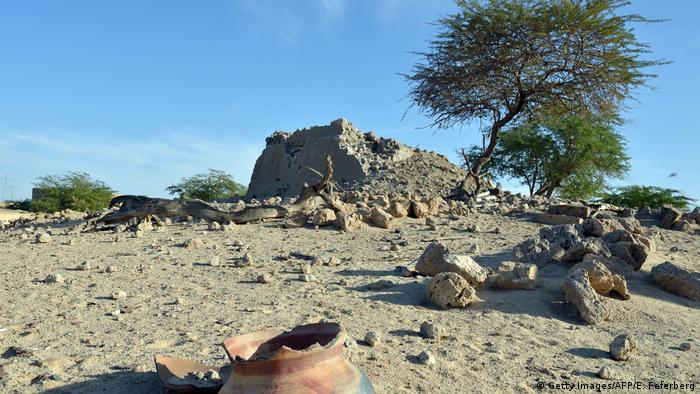An Ex-Jihadist is sentenced to compensation for the destruction of a world heritage site – claim for damages, he will never be able to pay. Mark Ellis of the International bar Association welcomed the judgment.

DW: Five years after the destruction of centuries-old cultural assets in Timbuktu, the Malian Ex is a Jihadist, Ahmad Al Faqi Al Mahdi reparations to the victims. It is common that the International court of justice in the Hague, The offender is sentenced to such payments, even if you can’t pay?
Mark Ellis: this is the second Time that the International court of justice has made such a decision. It is a trend-setting decision, although there is of course no possibility that the Accused can only make a part of the reparation payments. It is important that the victims of the destruction of cultural heritage will get a compensation. A trust Fund was set up. I assume that there will now be a collective and symbolic reparations payment.
The court decided that the trust Fund to decide for the victims themselves, such as the reparation payment will be made. Can you explain the process?
I think this is an important decision, because the trust Fund has emphasized that in view of the security situation in the North of Mali would be very difficult to distribute the compensation money on the spot. The decision enables the Fund to decide how the compensation will be paid.
During the court proceedings, the accused showed remorse and regretted his actions. Can improve such people?
Apparently, the court was of the view that Al Mahdi regretted his actions, and played in the condemnation of a large role. He asked for forgiveness and cooperated with the court. I think the remorse was credible. Now the offender goes to jail for nine years.
Feel the citizens of Timbuktu this judgment as just?

Mark Ellis, International Bar Association
I have been thinking about for a very long time with the international justice, and yet it is difficult to assess from a distance whether the victim of a sense of judgment, collectively, to meet or not. I suspect that many find it for various reasons, and I can understand them well. I’m not sure if it could ever be a verdict that the victims of such cruel than justified. The destruction of cultural heritage is an attack on the collective memory. It is ethnic cleansing. It is the intention to wipe out the identity of people, and it is very difficult to do justice for those who had to experience how cultural heritage is being destroyed. I hope that the victims feel that the verdict as fair; but if you don’t do it, which is not surprising.
Mark Ellis is the managing Director of the International Association of lawyers, lawyer’s chambers and associations, the International Bar Association (IBA).
The Interview was conducted by Jane Ayeko-Kümmeth.

